Display videos
Yes, I'd like to see videos dispalyed.
He moves under the Bayer Cross in the winter of 1996 and quickly develops into a hard-working defensive midfielder doing the dirty work whose qualities are only fully appreciated by the fans when he is not in the starting line-up or unavailable due to injury. Over the years, Calle becomes a fan favourite and plays a key role in the successes for Bayer 04 from 1996 to 2008 at the end of his career. He never wins a trophy but Calle is four times a runner-up with Bayer 04 in the league, loses the DFB-Pokal final with Bayer 04 against Schalke 04 in 2002, and the Champions League final against Real Madrid in the same year when he leads the Werkself out as captain following the serious injury to Jens Nowotny. Calle clocks up a total of 430 appearances for Bayer 04 and scores 31 goals along the way. He is named a Bayer 04 honorary captain at the end of his career in 2008.
He wins 46 international caps with Germany. He plays for his country at the 2002 World Cup in Japan and South Korea including in the 2-0 defeat in the final against Brazil. In addition to Ramelow, the team under the boss Rudi Völler also includes his Leverkusen teammates Oliver Neuville and Bernd Schneider in the starting XI.
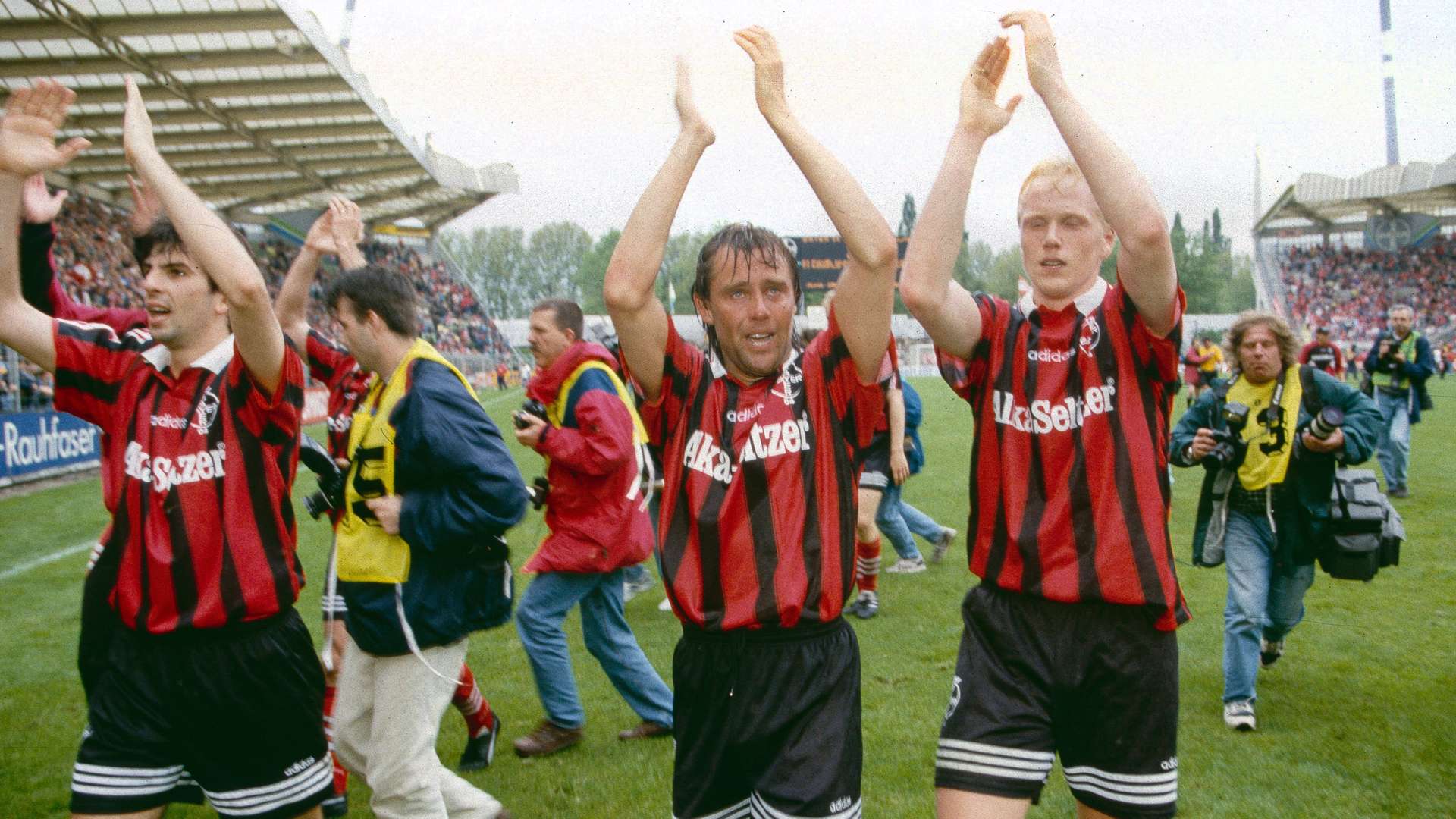

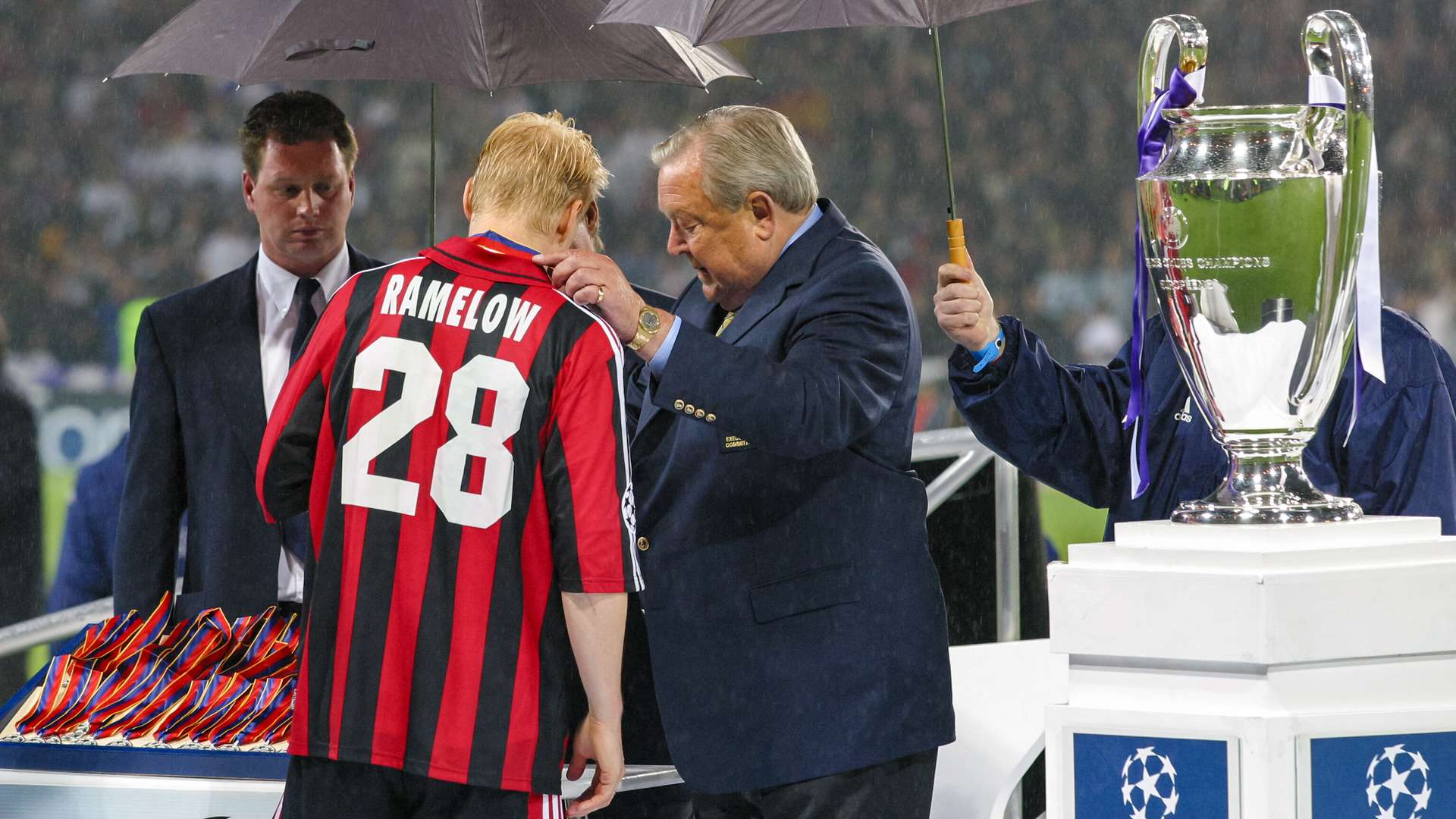
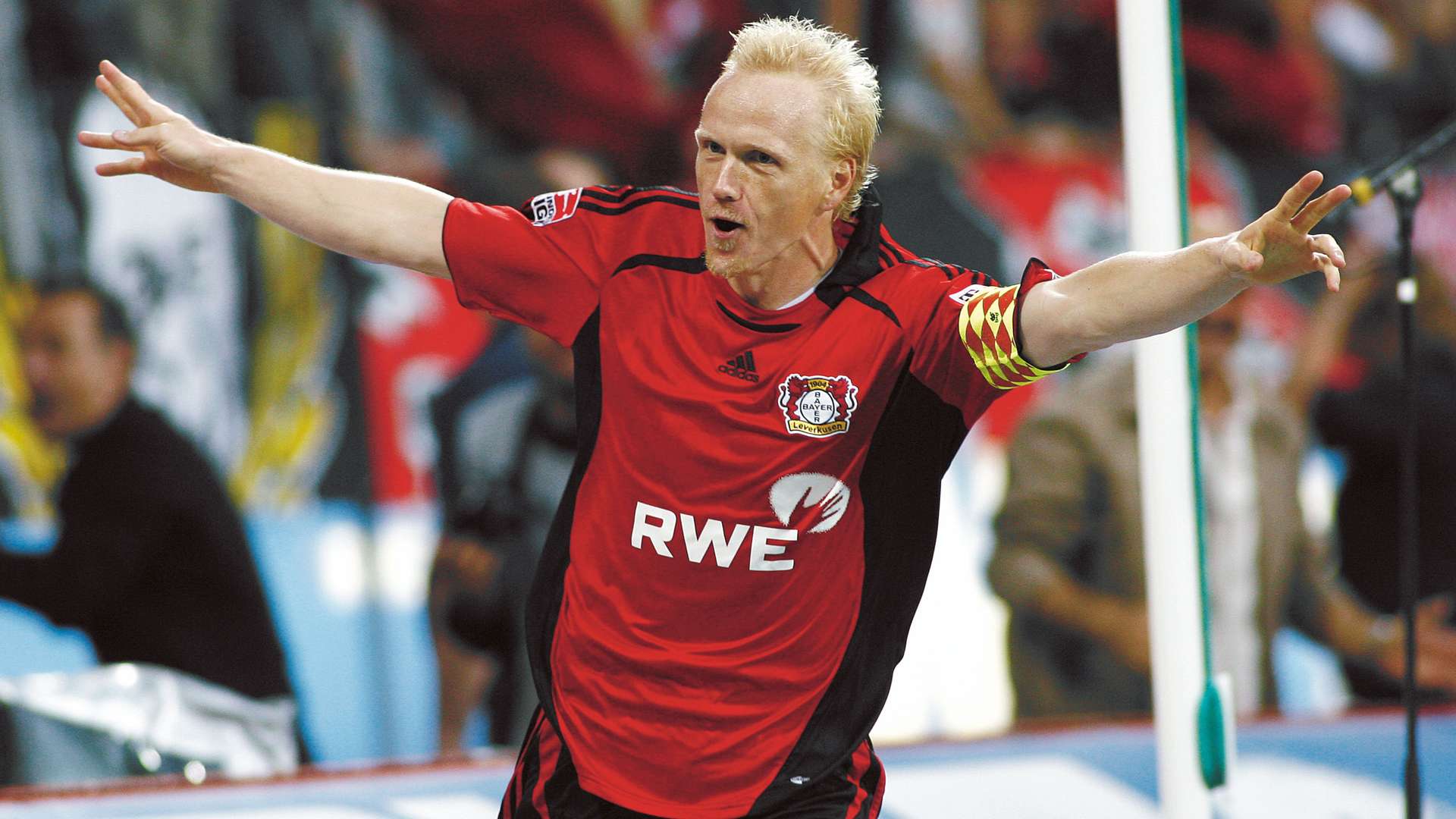
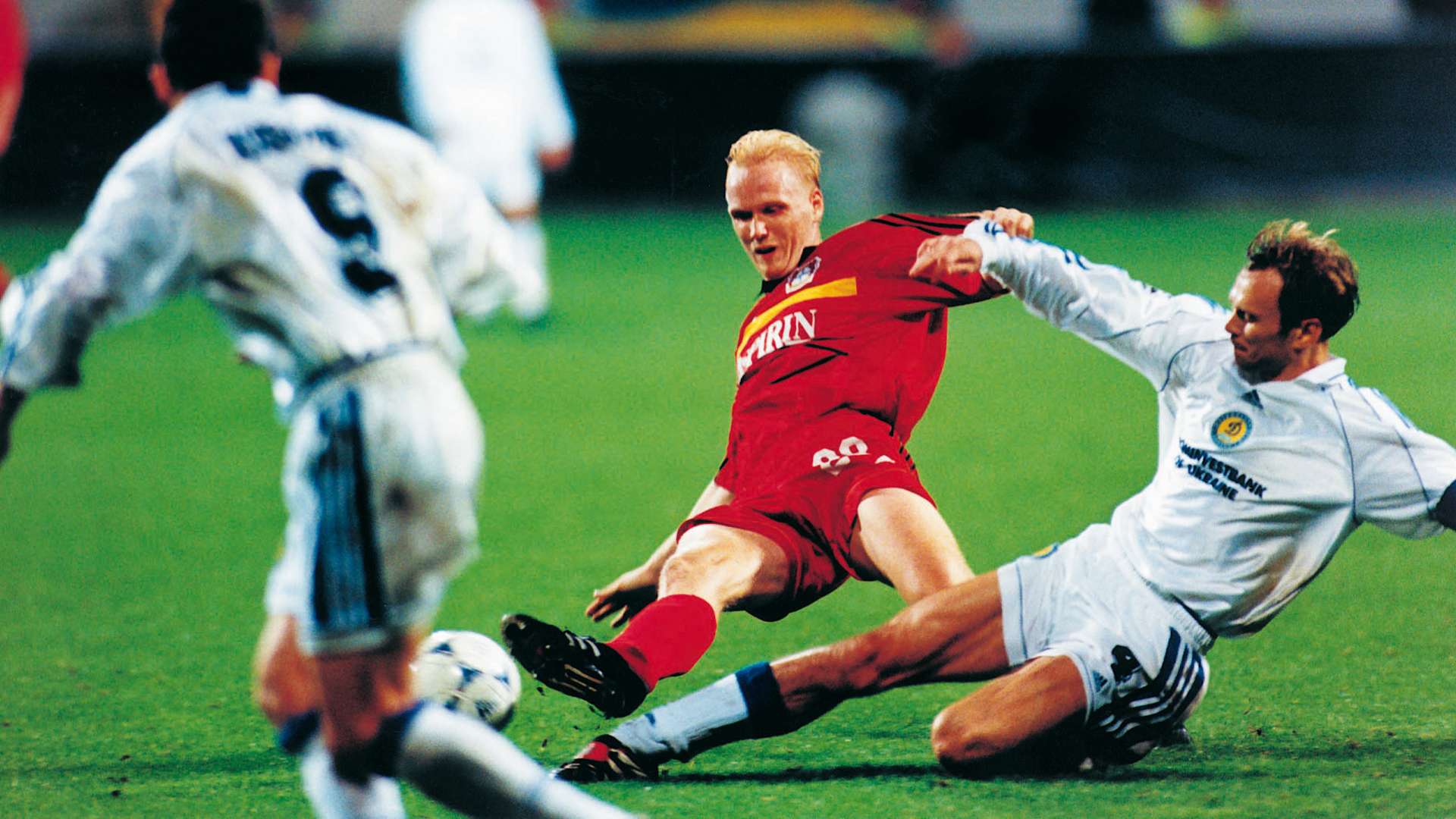
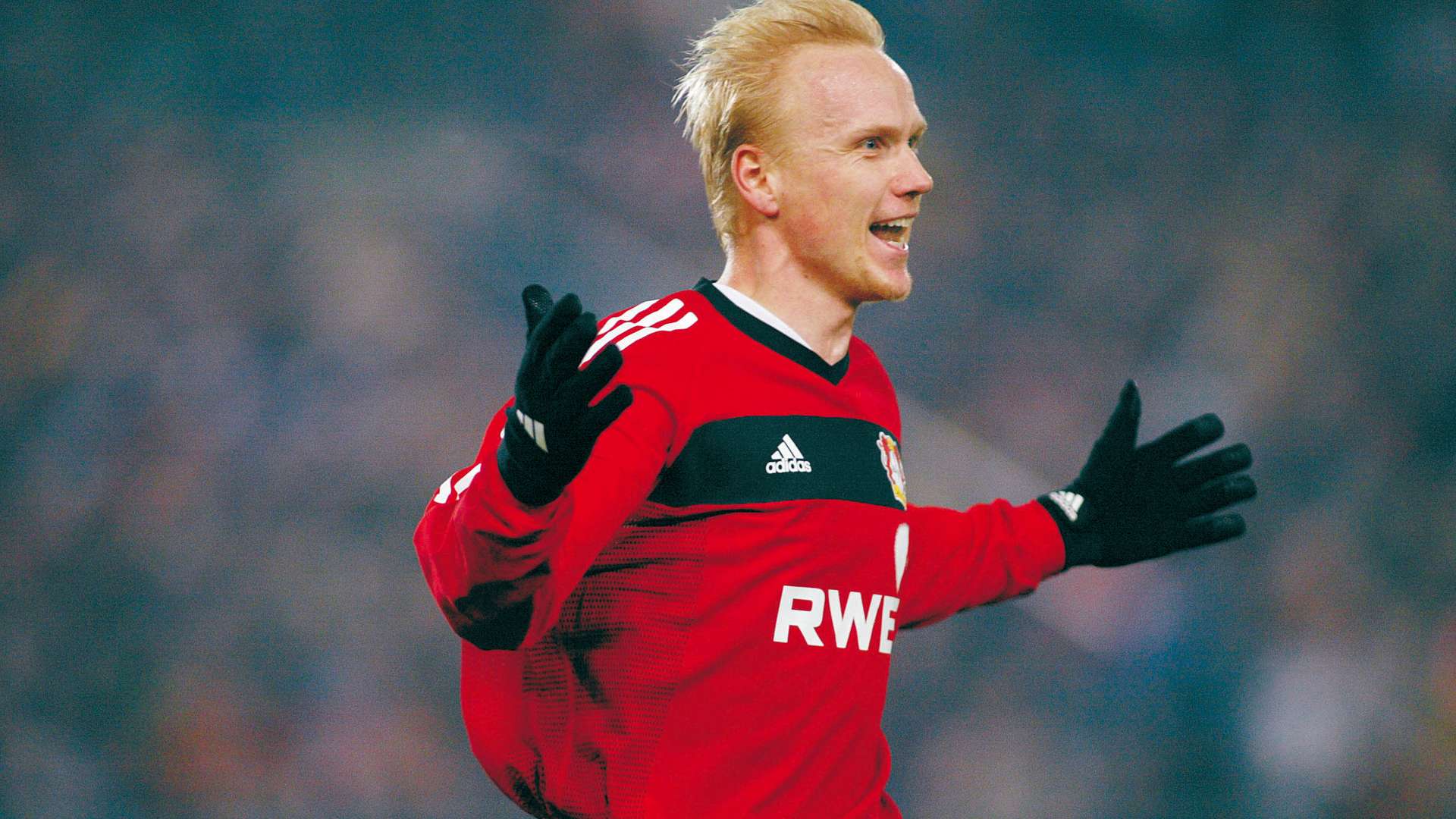
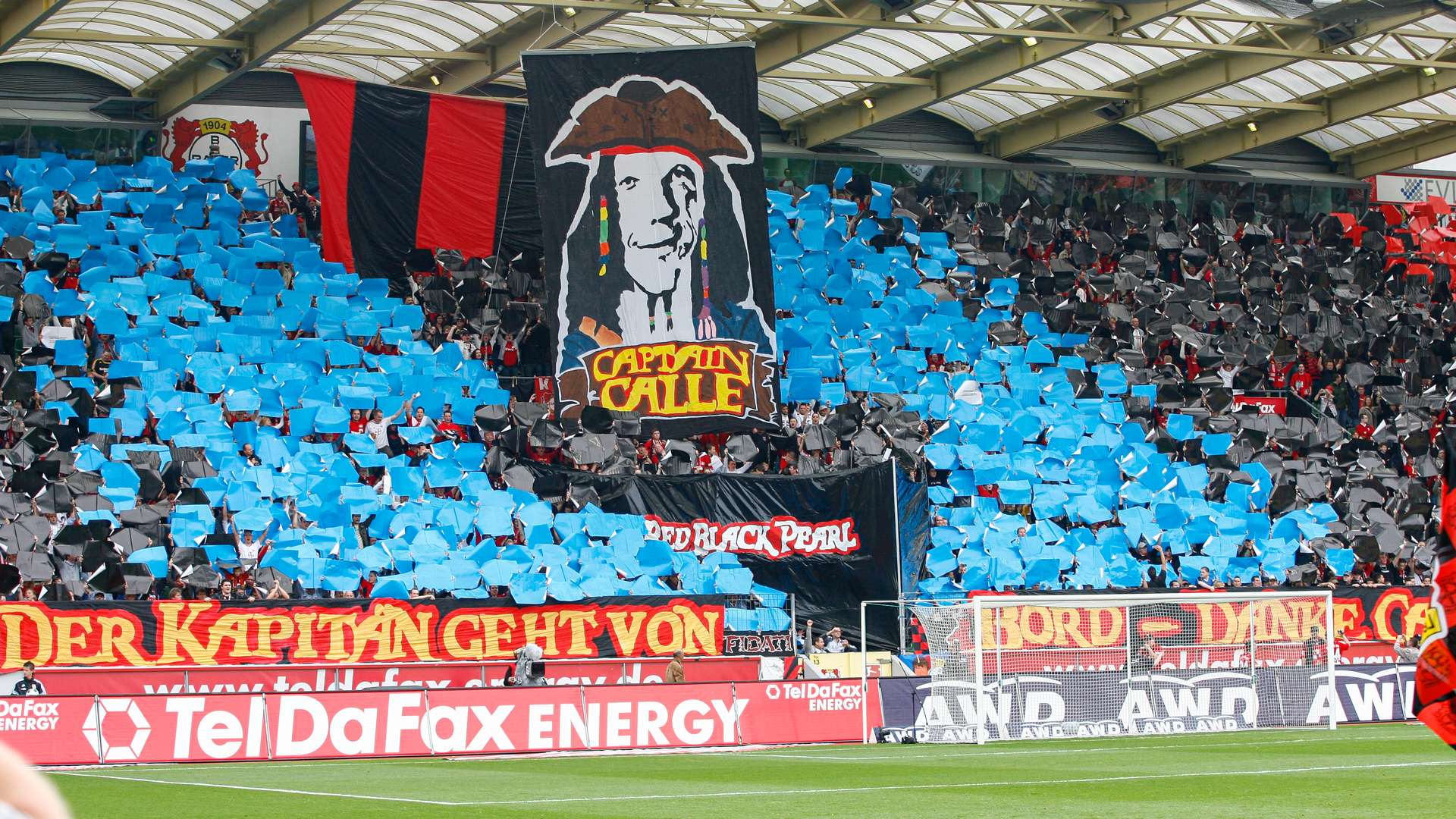
Calle now lives in Kürten-Bechen and is still sporadically involved with football. He is one of two vice presidents of the VDV, the association of professional football players, that represents the interests of their members in dealings with associations, clubs, agents and journalists and also looks after the players away from the football pitch. When time and his knee permit, he still plays for our Veterans team although it has become less and less frequent over the years.
Dear Calle, all the best on your 50th birthday. Celebrate with your family and above all: Stay healthy!
HERE is an in-depth profile on Carsten Ramelow at bayer04.de.
Related News
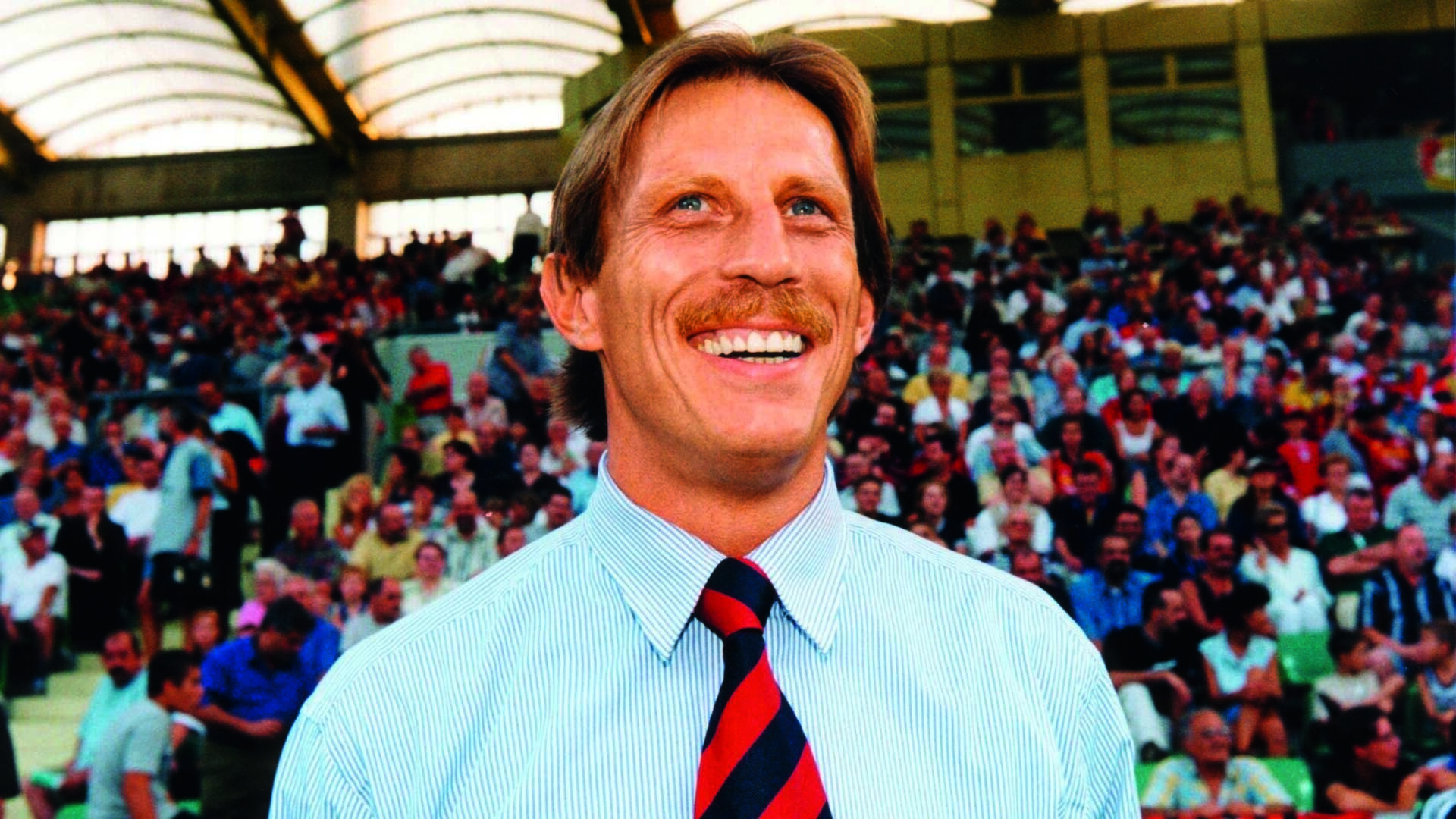
Legend: Christoph Daum - The man who taught us to want
Christoph Daum was born on 24 October 1953 in Zwickau. As a child, he moved to West Germany with his mother and grew up in Duisburg. He developed a great enthusiasm for football at an early age, even though it soon became clear that his future lay less on the pitch than on the sidelines. Even at a young age, his passion for analysing, explaining and improving things became apparent.
Show more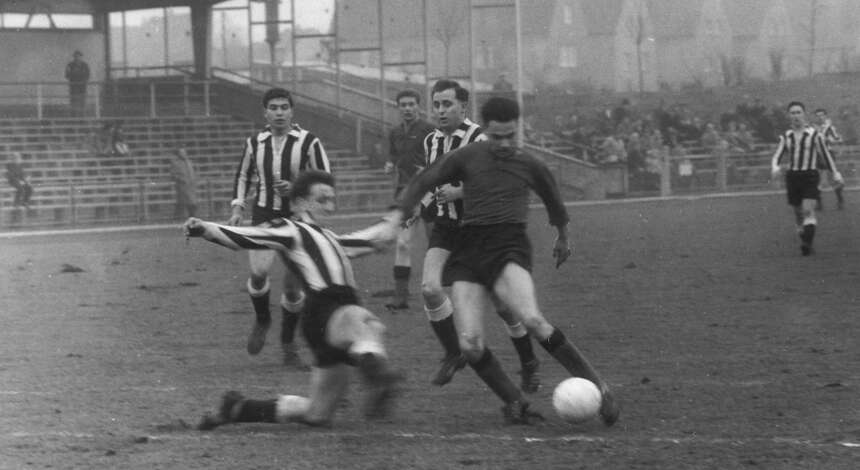
From the archives: 65 years ago - Another victory at last
When the Bayer 04 players celebrated Christmas in 1960, they spent the winter in second place in the Oberliga West 2 on 20 points - but already five points behind leaders Schwarz-Weiß Essen. However, coach Erich Garske's team are struggling to get back on track in the new year. A goalless draw against Bonner FV at home at the Ulrich Haberland Stadium was followed by a 2-1 away defeat in Erkenschwick. The following home game also yielded just one point. As a result, the team's promotion ambitions dwindled to a minimum, as the gap to the coveted spot has now grown to a challenging ten points.
Show more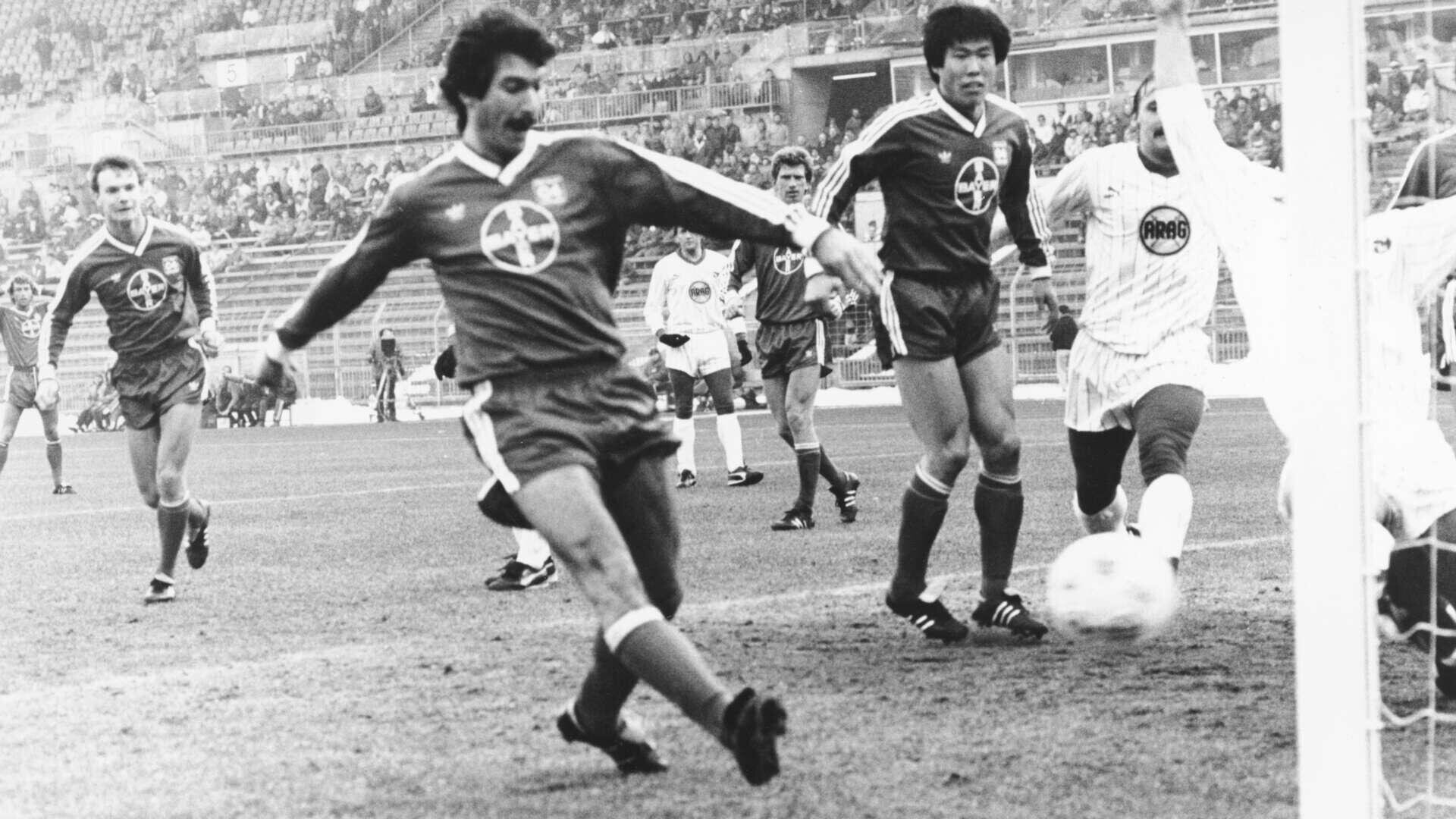
Goals of the month: From Waas to Tapsoba
In this video you can see impressive and important goals in Bayer 04 history from the month of February. It's not always about the beauty of the goals, but also a reminder of special games and players.
Show more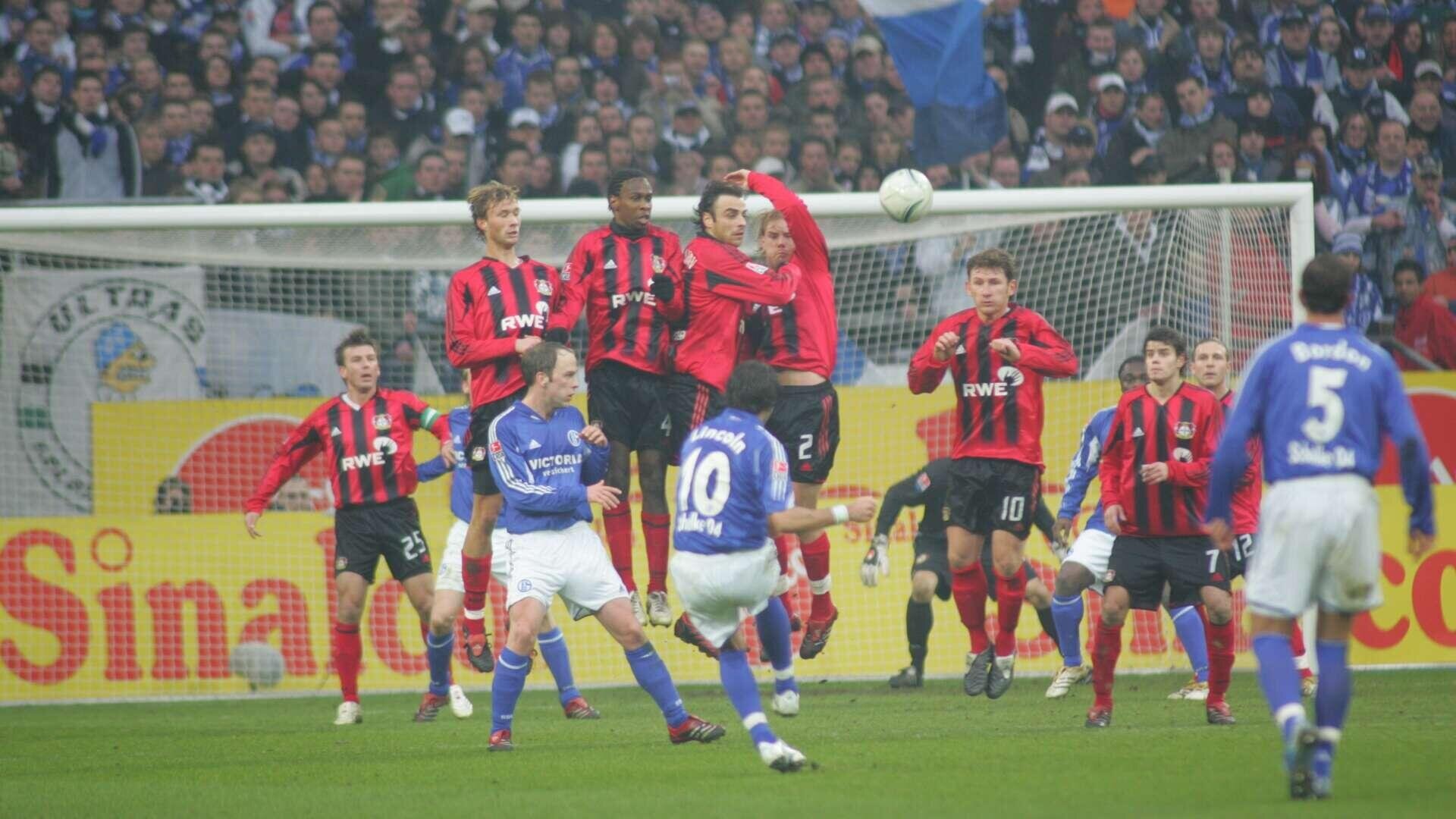
Match of the month: 20 years ago - A game of goals galore
It is 11 February 2006 and Schalke 04 and the Werkself kick off at 3.30 p.m. in a match that ends up being historic - at least from a Bayer 04 perspective.
Show more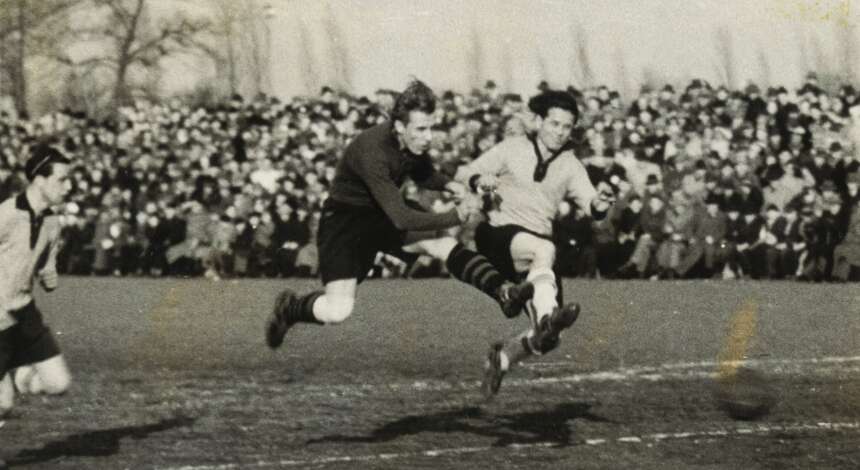
History: 75 years ago - The 1950/51 season (February)
As league leaders, the Werkself welcomed the relegation-threatened team from Rhenania Würselen. On 4 February 1951, 5,000 spectators line the touchlines despite the Sunday carnival parades. And they see a home team that is superior on the pitch. Without Theo Kirchberg, who was ill, and Emil Becks, who was suspended, the hosts attacked the opposing goal from the start. Battling against a strong wind in the first half, Bayer 04 created chance after chance, but were repeatedly thwarted by the Würselen goalkeeper. With the score at 0-0 at half-time, Karl Heinz Spikofski tried his luck on 55 minutes and hammered the ball into the opposition net from 20 metres out. Rhenania can no longer counterattack. The siege of the Würselen penalty area continued right to the end, but the game ended in a narrow 1-0 win.
Show more